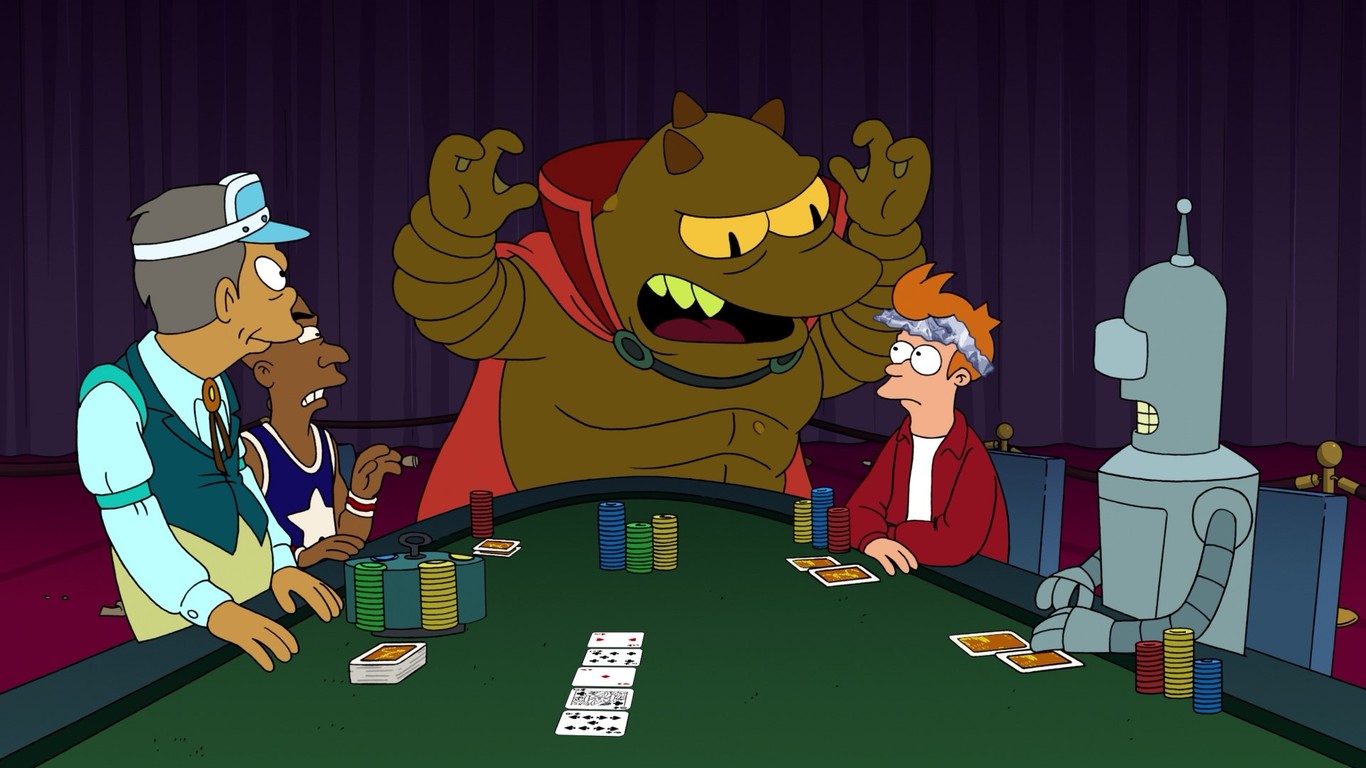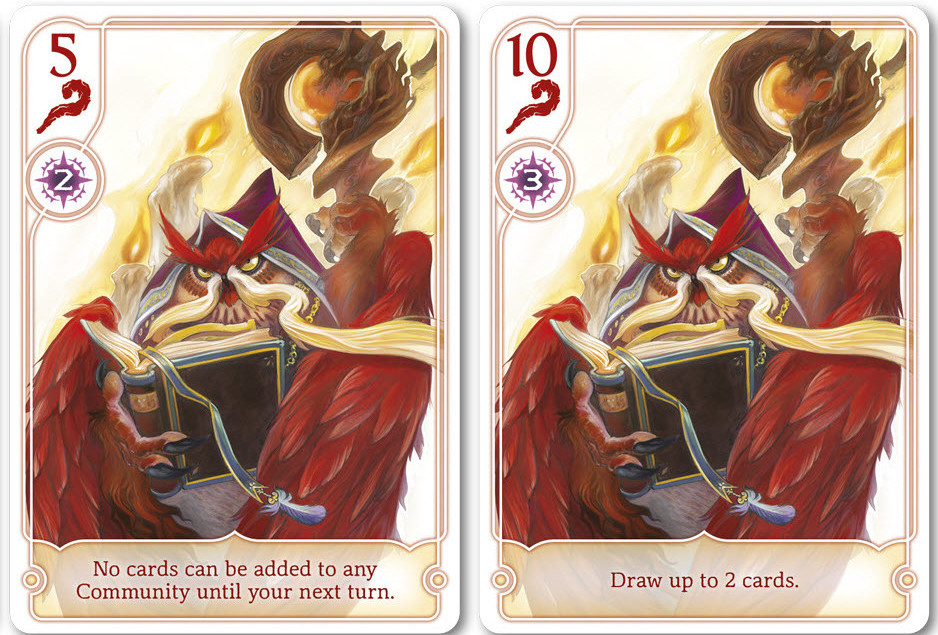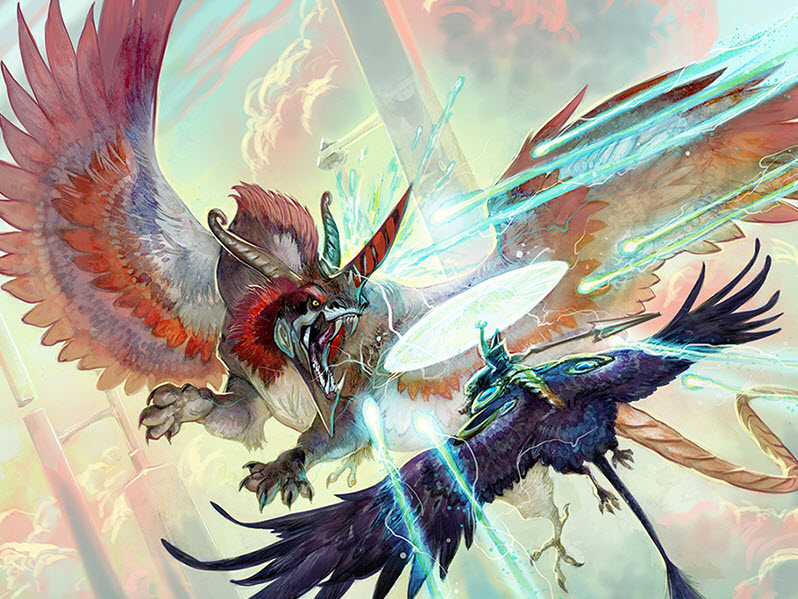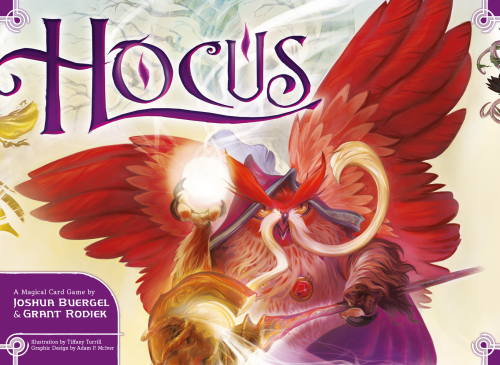As part of our January Spotlight on Hocus, we strive to inform readers of little extra tidbits surrounding the game. Games are made by people, and one of those tidbits we enjoy is learning a little bit more about the people behind them. Some designers shy away from the public stage, while others enjoy being front and center.
In the case of Hocus, we get to experience both sides. For indie designer Grant Rodiek, this isn’t his first time through the gauntlet, nor his most tumultuous. (But Farmageddon is another story.) Co-designer Joshua Buergel on the other hand is experiencing the magical development process that is bringing a game to market first-hand. These two designers have spent years combing through arcane texts, lost lore, and hidden scrolls, all so that they could combine their collective findings into some rules on how to play wizard poker. Now that their work is done, they’ve emerged from their archives ready to share with the world their thesis that is Hocus. So, naturally, this was deemed a good a time as any to chat with them about their findings, their future, and a few things in between.
Oh, and we ask about their poker acumen too. Because really, that’s what Hocus is mostly: poker for spell-slinging wizard folk.
See, wizards have never been prone to partake in regular poker. It was always deemed too simplistic. They much preferred their own version, cleverly called wizard poker. (We’re sure it has some long and hard-to-pronounce ‘true’ Elven name or something, but wizard poker will do here.) It’s along the same lines, but there’s a lot more actual magic involved – and the stakes are usually much higher. Want to really know why Avalon disappeared? Turns out Merlin lost a big hand to Titania, and, well, a bet’s a bet.
Hocus is that game, distilled down for us normal humans. In Hocus, players have the same goals as normal poker, but they also have a handful of spells at the ready to aid them. Prepare to sculpt your hands (yes plural) and build the pot, but with all sorts of twists at the ready. Honestly, a good wizard wouldn’t have it any other way. Thankfully, to that end Grant and Josh have offered to share some of their research with us about how Hocus was pieced together after years of experimentation, and they’re quite eager to have you try it out. We, being wizard-enthusiasts, were very curious to hear more. And so here we are. Enjoy!
Round One Questions
CR: What was your Gateway Game?
Grant: Either Heroscape in college or Modern Art at a job a few years ago.
Josh: As with most people my age, Dungeons and Dragons. In this case, from a set given to me by my stepsister when I was seven.
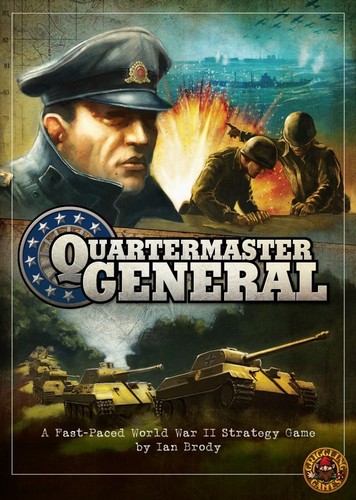 CR: What was the last game you really enjoyed playing (besides Hocus)?
CR: What was the last game you really enjoyed playing (besides Hocus)?
Josh: The most recent huge hit with my group is Quartermaster General, which we’ve done about ten times in the last three or so months.
Grant: Armada. I love it. Played it last a week or so ago.
CR: How big is your game collection?
Grant: I currently own 150 games, with 206 expansions for them. My previously owned collection is at 148 games. Basically, I don’t stockpile. I only keep the games I love and plan to play.
Josh: Depends how you count. If you include expansions and RPG items, north of 4000 items. Excluding those, around 3000. I, uh, do stockpile. In my defense, my behavior is inexcusable and likely an indicator of something wrong with me.
CR: What is your favorite type of game to play?
Josh: The broader the better. I’ve played RPGs all my life, and I love the broad possibilities. I adore Warhammer Quest with all the trimmings, for the huge variety of situations. I used to also play tournament Magic for the wide range of directions you could go in building your deck.
Grant: I really love tactical miniatures games like Armada and X-Wing, but I also love really clever card games like Netrunner. Both of those games let me modify my force or setup, which is really enticing.
CR: How do you feel about Monopoly?
Grant: I guess I don’t care? It has incredible momentum and is still super common. I don’t think anybody truly likes it, and most people play it incorrectly. I think Acquire should have replaced it in the 60s, but it didn’t, so…
Josh: It’s not very good, but it’s not the heinous crime against humanity some like to pretend it is. I do enjoy the irony of its success being largely due to market position, though. Anyway, it’s eminently ignorable these days.
On Hocus
CR: Hocus is heavily built upon classic poker rules, even from the early versions of the game. Are you big poker fans, or was there a different inspiration?
Grant: I think poker is really brilliant, but I don’t actually enjoy playing it that much. So, I sought to make a version that I did enjoy. It seemed like a fun challenge. I’m not saying I wanted to fix or improve poker…merely I wanted to make a version that’s more interesting for me personally.
Josh: Meanwhile, I play poker every week. I think my job on the design team was to make sure that Hocus contained stuff that people who loved poker could look at and not just shrug at. “Let’s play poker instead” would be a deadly phrase for the game. I find it interesting that some traditional card games, such as the whist family or rummy family, have had so many hobby games based around them, but poker, more popular than those, has had so few.
CR: So you don’t have to be a poker fan to enjoy Hocus? What’s the appeal of Hocus to someone unfamiliar or uninterested with traditional poker games?
Grant: I don’t think you do at all, really. Knowing poker will help you, as you’ll be better at identifying the hands and such. Otherwise, it’ll take a few games to pick that up. But Hocus is for people who enjoy hand management, an interactive table, and unique player powers. That’s the ticket for Hocus.
Josh: I agree with this. Poker will help with the learning curve, and some risk management instincts will come across, but you’re really playing a different game.
CR: In Hocus, each player gets three distinct Spell abilities. How did you go about balancing their powers with one another?
Grant: Slowly. We spent about 8 months with the final mechanisms, doing nothing but Spell balance. Essentially, we just played the game a great deal. We worked with others to identify high level trends, such as “these books all do one thing really well, but these do two things well.” We kept working to keep every power both unique and potent. It was just a long, arduous slog of playing and playing.
Josh: It was mostly about identifying the tall weed in the garden. Trying to find the outlying book, either too powerful or too weak. It also took us some time to just develop a strong sense of how adjustments would really play out for the books.
CR: Because of the unique nature of Spells, early game choices are very open-ended. How do you recommend new players offset analysis paralysis?
Grant: Just jump in. There are two super high level options: react to your opponents, or steer the course. Look at your hand for some early possibilities, and just see where it takes you. One card won’t lock you into anything. If you’re just wracked with indecision, pick a card with which you have a pair to pocket and effectively stall to the next player.
Josh: Stalling using pots is a rookie move, though. As with many traditional card games, identifying the relative strength of your hand is important. If you think there are lots of possibilities to riff off other people’s community plays, a pot opening might be fine. If your hand will be good if you contribute a couple cards to a community, get started with that. If your hand is terrible, start wrecking communities right out of the gate. Recognize when your hand stinks and try and kill the round fast.
CR: What was the inspiration behind having the Owls (one of the four suits) behaving differently than the other three?
Grant: During the year of finding the mechanism we came across the idea of having unique suits with different powers. This saw a lot of iteration, but ultimately, we came around to the Owls being a bonus reward that you gain. It added some more special powers, but also, a subtle layer of strategy on how to feed the Pot. I think Tarot was the inspiration. Just something you get by working on a game long enough. Too many folks “finish” a game too quickly. You fail to find some weird ideas that way.
Josh: Yeah, tarot was the seed here. The notion in tarot decks of a distinct suit, the Major Arcana, was what eventually turned into the Owls. There were blind alleys on the way, but having some extra character in the deck has turned out really well.
CR: Hocus has had a long road from design to doorstop. What stands out to you as the most memorable moment in the game’s lifespan to date?
Grant: After a fairly successful test of our final mechanisms at BGGCon, I took the game home to Texas to play with my family. They really, legitimately enjoyed playing. I knew then we had something.
Josh: I just remember when Grant emailed me after a test and just said “THIS IS IT”. It felt great.
CR: What about the most challenging moment?
Grant: About a week before we found our final mechanism – almost a year into development – I was just about ready to quit. It felt like we were barking up the wrong tree like idiots.
Josh: Yeah, it was far from clear that we were going to be able to get a game that we could be proud of there for a while. The hardest part of that time was trying to figure out how a round ended. Sorting that out really unlocked the rest of the design.
CR: One of the first things people notice about the game is its art. How did you go about choosing the artwork for the game?
Grant: We wanted to work with a phenomenal female illustrator, as previously we’d only worked with dudes and felt we could be more open. We asked Brett Bean, who did the art for Farmageddon, for some recommendations. We loved Tiffany’s portfolio, thought she was a genius, and thought she was perfect for Hocus.
Coincidentally, she was contracting at my day job at the time, so we were able to meet over coffee and discuss things. I thought Tiffany was awesome and we knew she was perfect for the role. We gave her time to meander and sketch and figure out the vision and boy, did she.
Josh: Turns out she’s a tarot nerd to boot.
CR: Lastly, what’s the best showdown you’ve actually pulled off personally with Hocus? We’re betting you’ve had a few impressive hands…
Grant: Any time I get a Straight Flush I feel awesome. Even if it’s not my doing. On Christmas Day, my wife’s uncle was setting up a flush, as he had the high card. But, as luck would have it, I had the 2 cards needed to fill in the Straight Flush. I sat back, let him stuff the pot, and I snuck in with quite the win.
Josh: Every time a full house gets cracked by a four of a kind, I giggle. It doesn’t happen that often, of course, but it’s always amusing when it does.
Now, we have a confession to make. See, we’ve played both the real wizard poker as well as Hocus (we have a mage on retainer), and while we’re fairly confidant that you wouldn’t want to sit down and play the former with bonafide magic wielders (trust us, it’ll just go badly), this game should fill that same void. Grant and Josh have taken painstaking effort to cobble together a version of the game for us Muggles that captures the same feeling but without the pesky matter of warping the fabric of reality in the process.
Of course, you don’t have to take our word for it. We’re giving you a chance to experience it yourself. It’s a simple buy-in really. All you have to do to for a chance at a copy of Hocus is by anteing up and entering our contest right now:
Photo Credits: Hocus cover and artwork by Hyperbole Games; Futurama by Comedy Central; Dragon Battle screen by Tiffany Turill.


